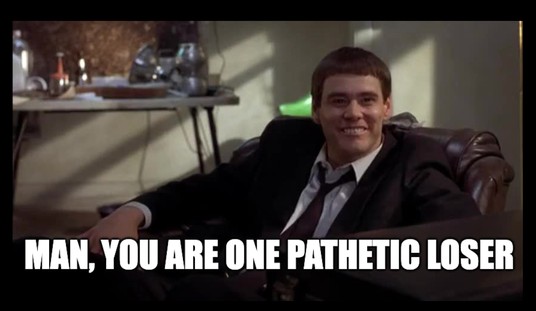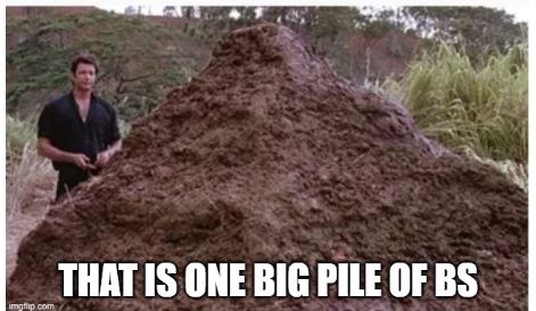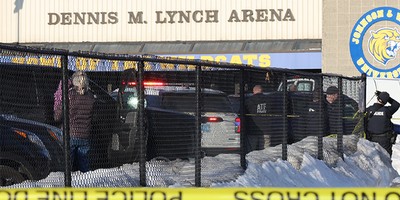Here’s the latest on the ongoing audit in Maricopa County, Ariz. of votes in the 2020 election. . .
First up, a judge gave Dems a pretty big victory on Thursday and ordered that all records regarding the audit are public, which means they’ll have to disclose how much the whole thing is costing and who is paying for it:
In a scathing ruling, a judge said the Senate must disclose who is funding the #AZAudit. He said the denial of a public records request would lead to the “absurd result” of effectively gutting state public records law. https://t.co/7ZDcPGcG2o
— Jim Small (@JimSmall) July 15, 2021
From the article:
The documents sought in the disputed records request center on the planning, execution and funding of election review. The Senate rejected the request and said it didn’t possess the records in question — rather, they were created and held by Cyber Ninjas, the Florida-based computer security company tasked with reviewing the election, and the subcontractors it hired. That meant they were outside of the scope of Arizona’s public records law, the Senate claimed.
But Kemp wrote that he “completely rejects” the Senate’s claim that Cyber Ninjas isn’t subject to public records laws on documents it creates related to the work the Senate hired it to do. Kemp noted that the Senate acknowledges the company is acting as an agent of the Senate, hired as part of the Senate’s “exercise of its legislative constitutional powers” to perform “important and valid” legislative work.
Also on Thursday, there was a hearing in the Arizona Senate to discuss the latest on the audit with members of the Cyber Ninjas team:
If you missed the live stream of the Senate Hearing on the Election Audit in Maricopa County yesterday, you can watch it here ➡️https://t.co/96EkNvgu4k#AZSenate #AZaudit #ElectionAudit pic.twitter.com/4n4m438fNd
— AZSenateRepublicans (@AZSenateGOP) July 16, 2021
Recommended
Note: Rep. Lauren Boebert claimed earlier today that YouTube pulled the video, but the video above shared by the Arizona Senate GOP is available on YouTube:
In case you were wondering how the #AZAudit hearing went, YouTube already took the video down.
That tells you all you need to know.
— Lauren Boebert (@laurenboebert) July 16, 2021
The biggest news out of the hearing was a claim made by the auditors and amplified by former President Trump that 74,000 more mail-in ballots were counted in 2020 than were actually sent:
Maricopa County, however, is disrupting this along with other claims made by the auditors at the hearing:
NEW: AZ Senate leadership hired unqualified auditors with a lack of election knowledge & a wealth of political bias. The claims these contractors advanced in yesterday’s briefing to senators enabling & enriching them were not based in fact. We refute more claims below 🧵
— Maricopa County (@maricopacounty) July 16, 2021
According to Maricopa county, there were 2,364,426 ballots requested and 1,918,024 counted:
CLAIM: 74,000 more mail-in ballots were counted in Nov. 2020 than were sent.
FACTS: @maricopavote calculated the true number of requests and returns:
REQUESTS = 2,364,426
RETURNS = 1,918,024— Maricopa County (@maricopacounty) July 16, 2021
They also have no idea where Cyber Ninjas got the 74,000+ number from:
So the claim is not just wrong but completely wrong. We don't know where Cyber Ninjas came up with that idea or number. Maricopa County provided additional details in the tweet below. https://t.co/dzEYSdIDwi
— Maricopa County (@maricopacounty) July 16, 2021
Reporter Garrett Archer suggested Cyber Ninjas was reading the data incorrectly:
Data incoming.
The #azaudit claimed 74k voters "returned" an early ballot but were not "sent" one.
Exact number is 74,241
All but 29 of the ballots were cast after 10/26. The county stopped sending "sent" files on 10/23.
Early in person voters after 10/23.
Ruling: False. pic.twitter.com/67eb8RgaNQ
— The AZ – abc15 – Data Guru (@Garrett_Archer) July 16, 2021
And he added, “It is either grossly negligent for failing to see a pattern of ballots being returned after a certain date or the statements were deliberately misleading”:
This is a glaring omission in the analysis. It is either grossly negligent for failing to see a pattern of ballots being returned after a certain date or the statements were deliberately misleading.
— The AZ – abc15 – Data Guru (@Garrett_Archer) July 16, 2021
Maricopa County also disputed that “more than 11,000 names were added to the voter rolls after Election Day but were recorded as casting a ballot in the Nov. election:
CLAIM: More than 11,000 names were added to the voter rolls after Election Day but were recorded as casting a ballot in the Nov. election.
FACTS: This is likely referring to people who cast provisional ballots. 18,310 provisional ballots were cast in the 2020 General Election.
— Maricopa County (@maricopacounty) July 16, 2021
These go through a rigorous verification process to make sure that the provisional ballots cast are only counted if the voter is eligible to vote in the election. This happens after Election Day. Only eligible voters are added to the voter rolls.
— Maricopa County (@maricopacounty) July 16, 2021
Of note: 7,605 provisional ballots were rejected in the General Election due to the individual not being registered to vote.
— Maricopa County (@maricopacounty) July 16, 2021
It is possible for a voter to not be on the voter rolls, vote a provisional ballot, receive credit for voting, that ballot not actually be counted because they voted provisionally, and then later show up on the voter rolls.
— Maricopa County (@maricopacounty) July 16, 2021
And they went on to question the qualifications of the auditors — again:
Since the Senate contractors are unqualified and untrained for this work, it's tough to know exactly what data they're using to come up with numbers.
— Maricopa County (@maricopacounty) July 16, 2021
The county also denied relaxing signature guidelines:
CLAIM: Maricopa County relaxed signature verification requirements.
FACTS: This is simply not true. Maricopa County follows rigorous state signature verification guidelines. Staff receives training prior to elections to ensure compliance.
— Maricopa County (@maricopacounty) July 16, 2021
In June 2020 prior to the Primary Election, all full-time staff members that perform signature verification in Maricopa County completed a statewide signature verification certification course offered by the Associated Forensic Laboratory, LLC.
— Maricopa County (@maricopacounty) July 16, 2021
And they explained what happens with duplicated ballots and why:
CLAIM: Maricopa County’s Duplication process allowed illegitimate ballots to be counted.
FACTS: When ballots are delivered to Maricopa County from military voters, overseas voters, large print ballots, braille ballots, or when they are too damaged to be read by a tabulator,👇
— Maricopa County (@maricopacounty) July 16, 2021
Maricopa County duplicates these ballots to ensure the votes can still be counted. The Elections Department assigns a matching serial number to both the original and duplicated ballot. This number can be used to compare the ballots.
— Maricopa County (@maricopacounty) July 16, 2021
The accuracy of Maricopa County’s duplication process was confirmed in court (CV2020-015282 Ward v. Jackson) where the plaintiffs randomly sampled 1,626 duplicated ballots.
— Maricopa County (@maricopacounty) July 16, 2021
As for what’s next, get ready for the court cases:
Maricopa BOS Chairman @jacksellers responds to #azaudit hearing with the same mic drop he did in May.
"Finish your audit and prepare to defend it in court." https://t.co/pXvGm0PcZB
— The AZ – abc15 – Data Guru (@Garrett_Archer) July 15, 2021
***

























Join the conversation as a VIP Member